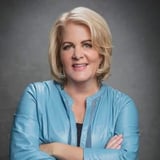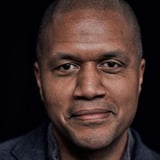Summary
Executive leadership typically requires leadership for the company or organization at large, not just of one’s team or functional discipline. While my day job is leading a team responsible for delivering work and informing the product-making process, I’ve also had to weigh how much to apply the researcher mindset to challenges and opportunities outside my team’s direct purviews. For example, do I point out methodological concerns in our company-wide surveys? Or do I challenge other teams to cite the unnamed “data” used to define decision-making outside of my team’s scope. And how do I remember that pointing out problems always comes with the obligation to help solve them? I will share how I navigate the challenge of leveraging my research skills and energy - and that of my team – without cannibalizing or de-prioritizing the product-related work of my team.
Key Insights
-
•
Researchers stepping into leadership roles must adopt a broader view prioritizing organizational and team goals beyond their discipline.
-
•
Identifying separate ‘hats’—researcher versus leader—helps clarify shifting responsibilities and mindsets.
-
•
High-stakes business decisions often require acting on incomplete data, challenging researchers’ inclination to seek perfect information.
-
•
Insisting on more research during critical decision-making can be seen as unhelpful or ignored if framed only as a research perspective.
-
•
Leadership involves embracing discomforts such as balancing team interests with company needs and accepting compromise in research quality across the organization.
-
•
Evangelizing rigorous research practices at scale is a leadership responsibility but can be exhausting and requires picking battles strategically.
-
•
Transparency and honesty about trade-offs and decisions are key to maintaining trust with research teams.
-
•
Moving research teams organizationally—from UX to strategy—can better align research scope with business priorities but requires long-term planning.
-
•
Communication and influence skills are critical for researchers to transition effectively into leadership and ensure their work is used.
-
•
Leadership is about managing outwardly—building relationships across the organization rather than relying solely on hierarchical authority.
Notable Quotes
"I hadn’t thought of myself as having a research hat and a leadership hat – I thought I only had one hat."
"That’s because you’re thinking with your research hat on, not your UX leadership hat."
"We will make the best decision possible given what we know – that’s a leadership response I had to learn to accept."
"Research done properly is a torch I carry, but I can’t run around the whole company with it all the time."
"Leadership is a mode, not a title, and anyone can be a leader."
"I take being a leader seriously because the responsibilities multiply at scale and some nights it keeps me awake."
"Sometimes people want their ego stroked or to exert power by demanding an artificial deadline, not because of real urgency."
"I’m transparent about compromises I make for the greater good, even if that sometimes frustrates my research team."
"As you grow as a leader, you spend less time doing research and more time being called upon as a researcher."
"It was funny when someone said to me, you are the executive leader, you have to be executive leader ready."
Or choose a question:
















More Videos
"We want teams to have autonomy and power to make pivot, shelve, and proceed decisions, not leadership dictating."
Standardizing Product Merits for Leaders, Designers, and Everyone
June 15, 2018

"The only people who can effectively map a space are those who work and understand that space intimately."
Simon WardleyMaps and Topographical Intelligence (Videoconference)
January 31, 2019

"Cisgender binary options in onboarding flows exclude non-binary and gender-expansive identities."
Sandra CamachoCreating More Bias-Proof Designs
January 22, 2025

"By observing Jeff’s concerns and asking questions, I was able to show empathy and focus on the problem rather than get defensive."
Darian DavisLessons from a Toxic Work Relationship
January 8, 2024

"Timely engagement helps stakeholders make faster, more informed decisions that lead to better business and product outcomes."
Fisayo Osilaja[Demo] The AI edge: From researcher to strategist
June 4, 2024

"Creating tangible artifacts forces reaction and debate, helping break enterprise paralysis and drive decisions."
Uday GajendarThe Wicked Craft of Enterprise UX
May 13, 2015

"Investing in people and fostering collaboration always pays off in stronger teams and better user experiences."
Davis Neable Guy SegalHow to Drive a Design Project When you Don’t Have a Design Team
June 10, 2021

"People were very adverse to changes because a small 0.5% conversion increase meant millions in revenue."
Eniola OluwoleLessons From the DesignOps Journey of the World's Largest Travel Site
October 24, 2019

"Design producers love their creative tools and want to keep using them without multiple manual reporting steps."
Aurobinda Pradhan Shashank DeshpandeIntroduction to Collaborative DesignOps using Cubyts
September 9, 2022
















